What Happens if You Put Gasoline in a Diesel Engine?
Diesel and gasoline engines operate differently, requiring specific fuels to run properly. Gas stations use different sized nozzles to prevent mixups. However, a smaller gasoline nozzle can still fit into a diesel vehicle’s tank.
While accidentally using the wrong engine oil isn’t ideal, using the wrong fuel can be catastrophic. But what exactly will happen if you accidentally put gasoline in a diesel engine? And what should you do (and not do) if this were to happen?
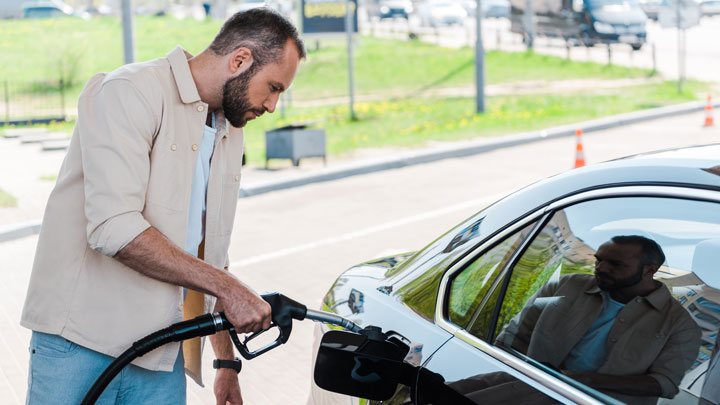
Related: Bleach in a Gas Tank? (What Really Happens)
What Happens When You Put Gas in a Diesel Engine
If you catch this problem early enough, you may be able to prevent serious damage from being done to your vehicle. But if you keep driving your vehicle with the wrong fuel in it, then you might experience all these problems.
Here are six issues you may experience if you put unleaded gas in a diesel engine:
Read Also: 7 Different Types of Fuel for Cars
#1 – No Ignition
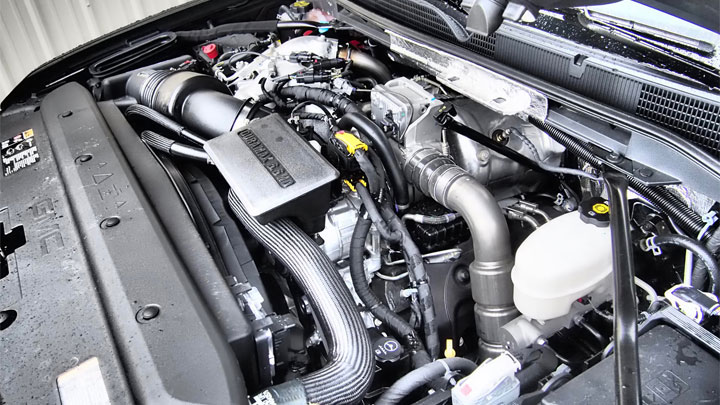
A diesel engine is not designed to ignite fuel. Gasoline is designed so that it won’t ignite automatically (it requires a spark plug to ignite). Therefore, when gasoline flows into a diesel engine, there will be no ignition that takes place.
If by chance there is an ignition since diesel is mixed with gas, it will be too severe for what the engine can handle.
#2 – No Lubrication
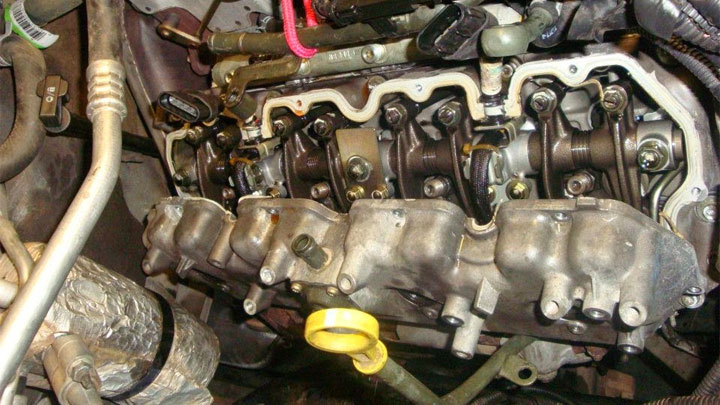
A lot of people forget that diesel fuel is basically the same as oil as it lubricates a diesel engine’s components. If you put gasoline (a solvent) into the engine, it’s not made to lubricate these parts.
Instead, it will contaminate them while they receive no lubrication. As a result, the metal components will rub against each other and became permanently damaged.
See Also: Water in a Gas Tank (What Happens)
#3 – Fuel System Damage
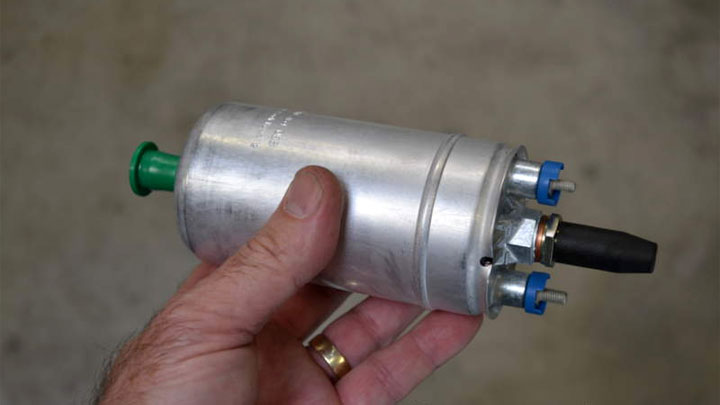
Gasoline will certainly affect the fuel injectors, fuel pump, and fuel filter of your diesel engine. This makes up the whole fuel system of your vehicle.
Without these components working properly, you will have to replace your fuel system entirely.
Read Also: Fuel Gauge Malfunction (Causes and Repair Cost)
#4 – Shock Wave Damage
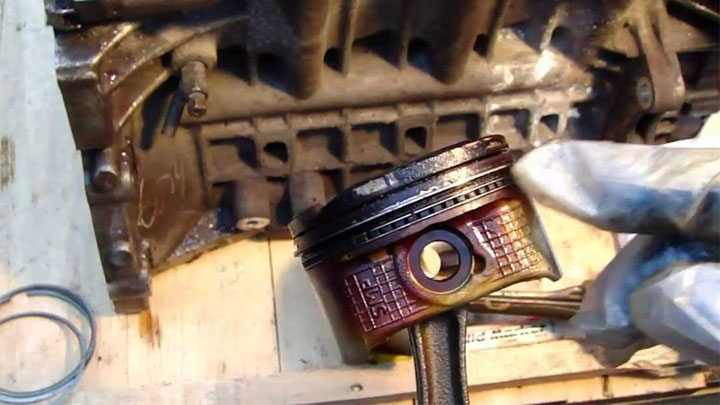
There are lots of reciprocating parts and components inside a diesel engine, such as rods, pistons, and wrist pins. If there is an unusual detonation that is uncontrollable, the shock waves from the detonation could damage or destroy these components.
Gasoline can surely cause a detonation that the diesel engine’s components cannot handle.
#5 – Engine Damage
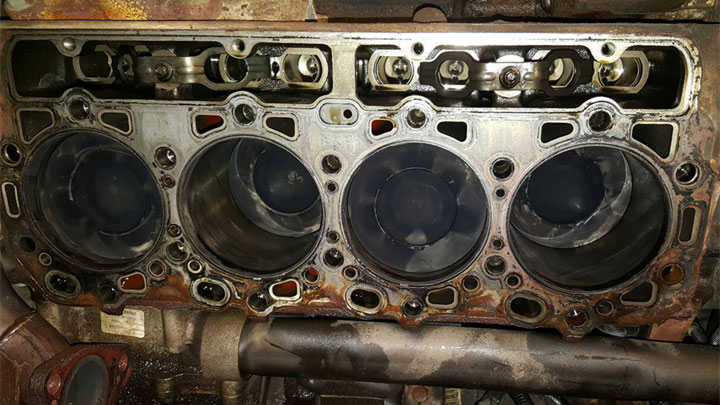
If the problem is caught soon enough, the engine can be salvaged before it is too damaged beyond repair. But the longer you attempt to drive with the gasoline in the diesel engine, the more likely your engine will be completely destroyed. And as you probably know, replacing an entire engine is very expensive.
#6 – Black Smoke
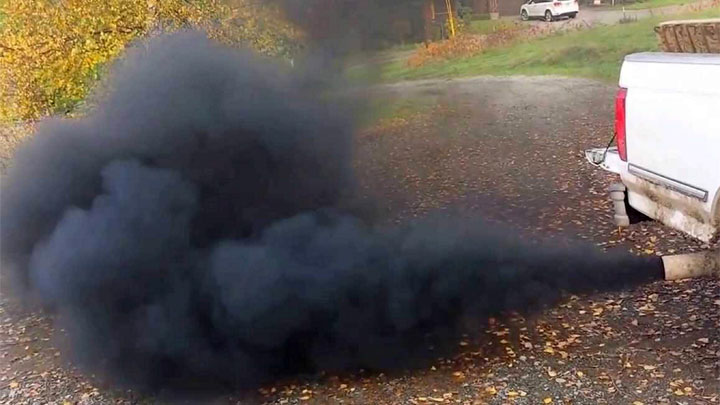
Octane rating is a fuel’s resistance to combustion under pressure. Gasoline has an octane rating between 87 and 93 AKI. Diesel is closer to 25. Since diesel has a much lower octane rating than gasoline, gasoline will have a much harder time igniting in a diesel engine, which means a lot of unburned fuel.
This will show up as large amounts of black smoke coming out of your exhaust. While the smoke itself looks and smells bad, it also signifies that various parts and sensors in your fuel system will eventually clog up because of soot.
What to Do and Don’t Do
If you realize that you put the wrong fuel in your diesel engine at the gas pump, don’t panic (well ok, maybe a little). There are a few things that you can do to save your vehicle from sustaining any real damage. Below are the top five tips that you should follow in a situation like this.
- DO NOT try to start the engine. Leave the vehicle exactly where it is.
- DO NOT try to turn on the ignition. Any attempt to turn the ignition key to the “On” position will cause the fuel pump and fuel injectors to activate.
- If you already managed to start the car and started driving before you realized your error, pull over to the side of the road or a parking lot and call for a tow truck.
- Call for a tow truck to come and tow your vehicle away from the gas station. Have them take your vehicle to your local dealership or any trustworthy auto mechanic.
- The fuel tank will need to be completely drained and the fuel system flushed out. As long as the vehicle was not turned on, the gasoline will not have contaminated any of the internal components.
- Replace the Engine or Replace the Car? (11 Factors to Consider) - Apr 11, 2024
- Plastic Piece Dragging Under Your Car? (What It Is and What To Do) - Mar 21, 2024
- Timing Belt vs Timing Chain (What’s the Difference?) - Feb 27, 2024

I heard that farmers would put a gallon of gas to a tank of diesel in the winter and cold temperatures so that it would start easier. Anyone else heard of this?
I added 2 gallons of gasoline to my 1981 diesel burning 555B Ford Backhoe. I didn’t start it up until I siphoned all the fuel out. It ran for about 2 minutes and then shut off and wouldn’t start back. Does the fuel pump have to come off to be filtered?
I don’t know for sure, but my gut tells me you will want to make sure all gasoline is out of the fuel system before you run the engine again.
What should i do the gasoline boy puts 1.8litters of gas in may diesel engine then they tell me its ok because its not that huge amount of gasoline is it ok?
No, that’s not good for the engine. Have you driven the vehicle since the gasoline was added? You may want to consider towing the vehicle to a place that can drain the gasoline out of the tank.
Get every once of gas from the fuel system, lines, everything, replace the fuel filter and add diesel, cross fingers. Pumping out sounds good but…you will not get every bit of the gas out, and mixing the two will cause more problems, engine damage.
Way back when before all these fancy additives where around they would mix gas into diesel so that it wouldn’t gel up when it was cold out. New stuff I wouldn’t do that 2 but older diesel engines I would top it off with the proper fuel and run it.
I recently went to fred meyer here where i live in oregon and the gas attendant put a few gallons of gasoline in my diesel 2003 passat which was almost empty not knowing he did this i left the store heading home and only made it about a mile before my car started struggling and died. Not aware yet of the issue i pumped the gas pedal and started my car again and drove toward a parking lot. I didnt make it far before my vehicle died again. Thats when it accured to me i had the wrong fuel. I need to know what should be replaced considering not only did i drive until it died but after started it and drove again until it died if someone could please give me a little guidance i should greatly appreciate it.
Ugh, this is why every state should have self-serve gas. I personally hate driving in Oregon because of this. My understanding is, once you left the gas station, they are no longer liable.
I wouldn’t drive it again without pumping out all the fuel in the tank. Then add a few gallons of diesel and see what happens. I think you will be fine though. You aren’t the first person this has happened to (nor will you be the last).
Hi, i accidentally did this to my triton 2017. Similar things happened to the both us. The gasoline boy puts unleaded to my diesel. I’d truly appreciate it if you tell me what happened to your car after the incident.
Hi … can u give me an update on your situation